Berlin is thought for being Germany’s edgy, arty alter ego. So, too, is its culinary scene, with the town forming an enclave of progressivism in a nation that’s usually conservative about what it eats.
The brand new era of Berlin’s cooks is rising up in defiance of the predominant basic haute delicacies imported from France and is defining the town’s culinary id primarily based on native flavours. Their decisions are political — neighborhood earlier than capitalism, equity over greed, actual meals quite than industrialised agriculture. They’re sourcing radically recent produce instantly from producers as near the kitchen as attainable and serving it stripped of fuss and fancy.
One restaurant particularly has formed Berlin into the gastronomical powerhouse it’s as we speak. Nobelhart & Schmutzig, opened in 2015 by sommelier Billy Wagner and chef Micha Schäfer, dropped at Berlin the minimalism, and extra crucially, the obsession with hyper-local sourcing, of the Nordic strategy spearheaded by chef Rene Redzepi of Noma in Copenhagen.
You’ll not discover any olive oil or black pepper at Nobelhart & Schmutzig, nor lemons, tuna, or chocolate. Solely naturally rising uncooked components sourced instantly from folks throughout the larger Berlin area make their approach into Schäfer’s kitchen, in what is named their “brutally native” strategy.
“I contemplate us essentially the most southern a part of northern Germany — right here we develop grain and make beer; we’re not a wine area like Tuscany or Madrid. I assumed what all of the Nordic cooks have been doing was fascinating, showcasing their id and their space,” says Wagner.
“However again in 2015, many individuals stated to me, ‘Berlin meals and id? That’s kebab and currywurst! There’s nothing else.’ So I assumed I’d create an id by seeing what now we have within the space.”
He arrange a community of producers, from the potter who makes plates to the cabbage farmer, bread baker, dairy farmer, and butcher. He additionally set about educating others within the hospitality trade as a way to create an even bigger demand for glorious native merchandise, which might profit producers, cooks, diners, and the surroundings.
His philosophy extends to the restaurant itself, the place he’s strict about employees’ rights, with employees working four-day, 40-hour weeks — a rarity within the hospitality trade — and he has a code of ethics, written collaboratively together with his employees, that protects them from discrimination, sexual harassment, and abuse of energy. The restaurant, which has a Michelin star and a inexperienced star for sustainability, plus is No.45 on the World’s 50 Greatest Eating places record this 12 months, is named Berlin’s most political — “consuming is a political act”, proclaims Wagner.
However there’s a enjoyable facet to Nobelhart & Schmutzig, too. The restaurant’s identify is an amalgamation of three phrases: “nobel” or “refined”, “hart” or “powerful”, and “schmutzig” or “soiled”. This encapsulates the restaurant’s uncompromising high quality, glorious components, hard-edged strategy, and wine-fuelled hedonism. It additionally describes Wagner’s superb eating expertise: It begins refined, will get a bit powerful because the empty wine glasses stack up on the desk, and ends enjoyably soiled in Berlin’s legendary techno nightclub Berghain.
In 2015, many individuals stated to me, ‘Berlin meals and id? That’s kebab and currywurst! There’s nothing else.’ So I assumed I’d create an id by seeing what now we have within the space.BILLY WAGNER, OWNER OF NOBELHART & SCHMUTZIG
Wagner’s provocative sense of humour is well-known — he provides diners genitalia-shaped soaps after dinner as an alternative of the standard candies to take house, and he launched a collection of dinners in galleries, factories, golf equipment, and even intercourse outlets throughout the pandemic years.
Whereas Wagner’s naughtiness stays a uniquely Nobelhart & Schmutzig trait, his best affect has been via Die Gemeinschaft, a non-profit organisation he arrange with one other Berlin-based chef, Sebastian Frank of two-Michelin-starred Horvath. The organisation hyperlinks cooks and retailers with growers and producers who share the identical values, similar to accountable and regenerative manufacturing, data sharing, range, and honest pricing.
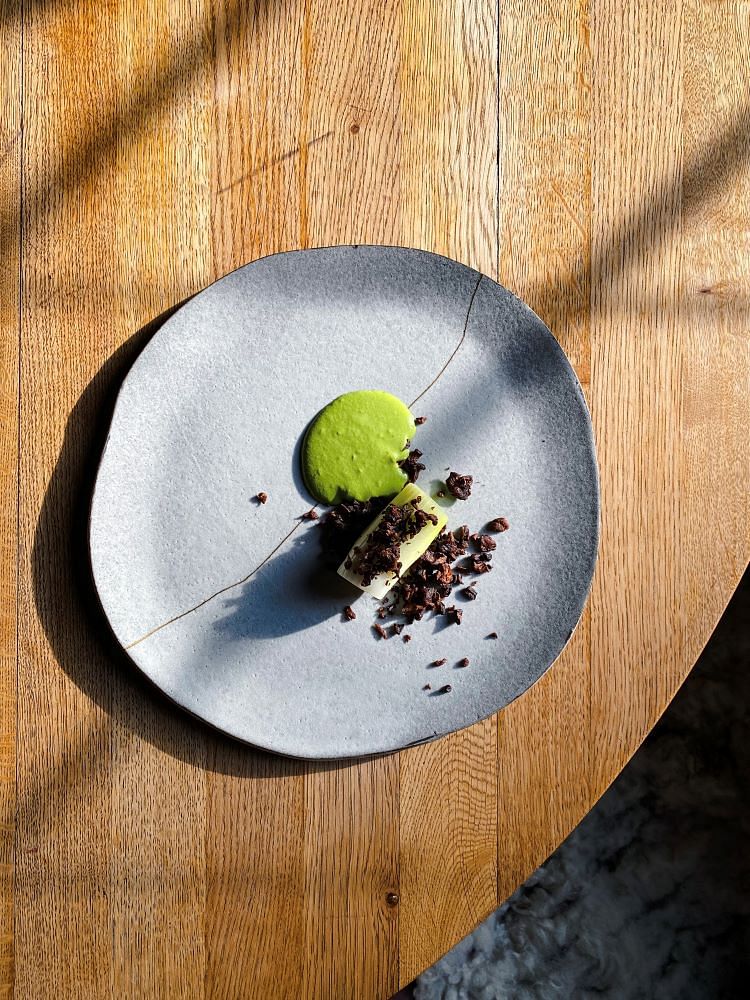
An extended record of the town’s eating places at the moment are members of Die Gemeinschaft (which interprets as “The Group”), and Wagner’s obsession with native sourcing has influenced a wide selection of cooks who share his politics and need to construct a extra round, sustainable, and moral meals system that helps the area people and is healthier for the planet.
Individualised takes on “brutally native” delicacies have as we speak turn out to be virtually mainstream in Berlin’s progressive eating places. Nonetheless, not all eating places — whether or not members of Die Gemeinschaft or not — are as uncompromising as Nobelhart & Schmutzig. Many take the strategy of utilizing native components as a lot as attainable, however not completely.
Café Frieda, the splendidly heat and convivial new restaurant by sommelier Samina Raza and her accomplice chef Ben Zviel, who’re additionally behind Berlin’s much-loved (and briefly closed) Mrs Robinson’s, has “F**ok industrial agriculture. Farm regeneratively or die.” emblazoned on menus. The group sources seasonal components grown near the restaurant, cultivating private relationships with those that produce them.
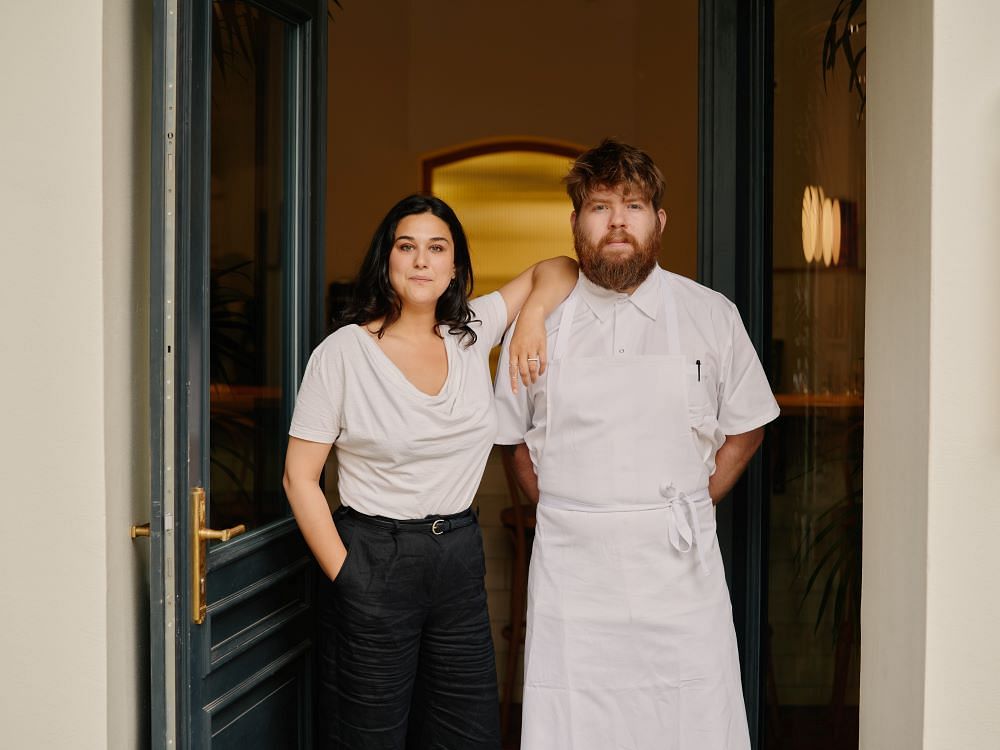
The birds of their wild duck, liver, and comté pie, for instance, come from the women-owned Prignitzer Landhof farm a few hours from Berlin, whereas their niçoise salad makes use of greens from the neighborhood terraforming mission known as Wilmars Gaerten simply exterior of Berlin, together with anchovies from Cantabria, Spain.
Sculptor and chocolatier Kristiane Kegelmann opened Pars a 12 months in the past, the place head chef Alina Jakobsmeier, additionally a skilled patissière, serves pared-back, refined dishes that showcase the components on the plate. Their elegantly organized, mutely shaded dish of dumpling with bitter cream and sauerkraut has lardo and pork head meat from Erdhof farm, situated a few hours from Berlin, whereas the chocolate of their strikingly architectural pralines is from native luminary Holger in’t Veld, who sources essentially the most pretty produced beans from all over the world.

At Hallmann & Klee, the rustic-chic neighbourhood restaurant within the now-trendy Neukölln district, Sarah Hallmann gained Restaurateur of the Yr 2023 within the German version of the distinguished Gault & Millau information for her elegantly minimalistic but nonetheless vibrant tasting menus. Her frivolously wilted native greens topped with gorgonzola and draped over bouchot mussels are a fascinating marriage of umami flavours lifted by a herbaceous oil. Her Nordfriesland Wagyu tartare with crispy Jerusalem artichoke chips presents various textures, whereas the delicacy of the meat is counterbalanced by the acidity of dehydrated apple vinegar drizzle.
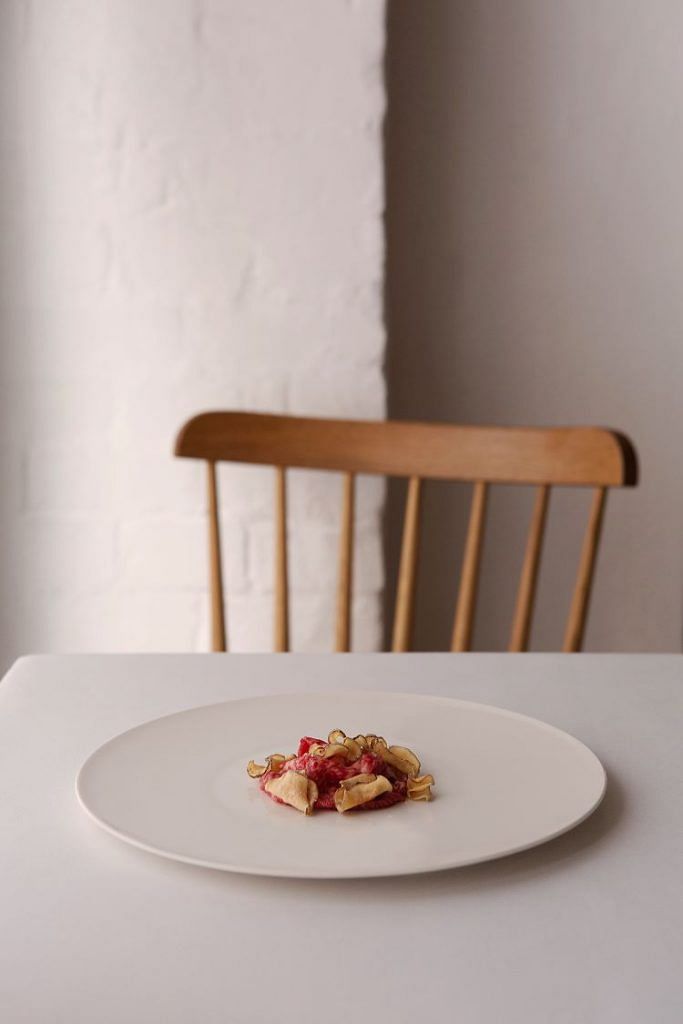
No air freight please
René Frank of two-Michelin-starred Coda, who gained the World’s Greatest Pastry Chef award from 50 Greatest in 2022, says he too was impressed by Wagner’s philosophy. He says that working carefully and instantly with producers quite than going via a middle-man provider ensures high quality management.
Coda is described as a “dessert eating” restaurant, though what Frank is doing defies pigeonholing. His 10-course menu shakes up our concepts of savoury and candy, with some dishes utilizing historically savoury components, similar to greens, in candy programs, whereas others use dessert strategies in savoury programs.
His well-known Caviar Popsicle is Jerusalem artichoke ice cream dipped in a coating of Oscietra caviar and served on a stick, whereas Buttercream, which is paying homage to a cupcake, combines walnuts, dulse seaweed, and miso and is served with a drink that blends Portuguese Madeira and black tea from Sichuan.
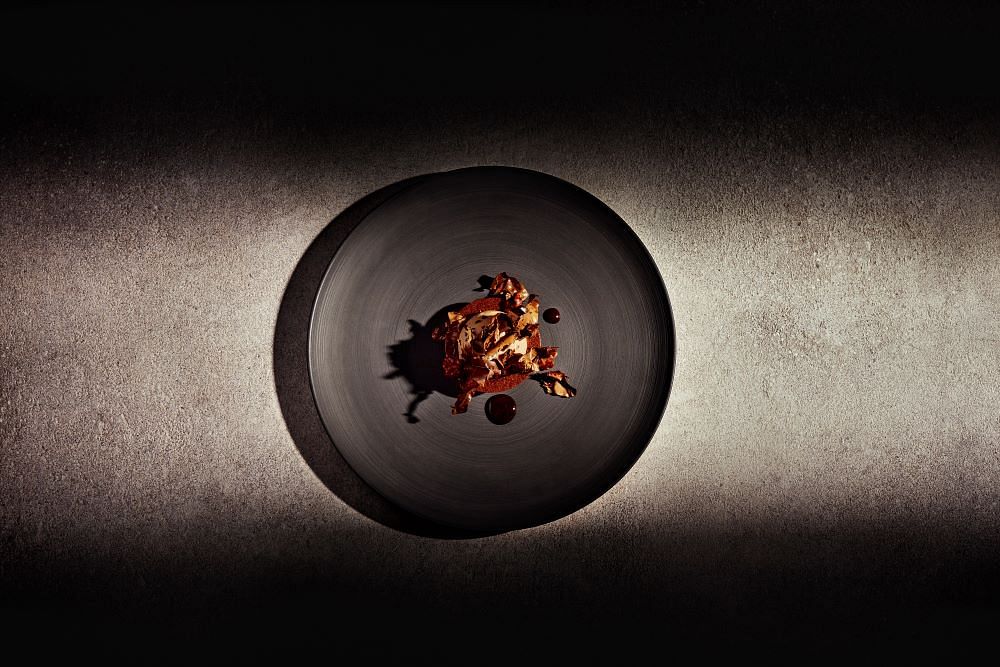
The character of his delicacies necessitates utilizing components from afar, together with chocolate, however he eschews produce that must be flown in by aeroplane for environmental causes.
“I’ll solely use unique components if we don’t need to fly them in, so we gained’t use pineapple, passionfruit, or mango, though I’m jealous of cooks in different nations who can. For me, it’s unimaginable to work with out cacao, however this and bananas, for instance, can come by ship,” he says. “In winter, I can’t get plums, however in season, I get a great deal of superb plums from France or right here in Germany, so we protect them for winter use. Identical for cherries; we semi-dry them to protect them.”
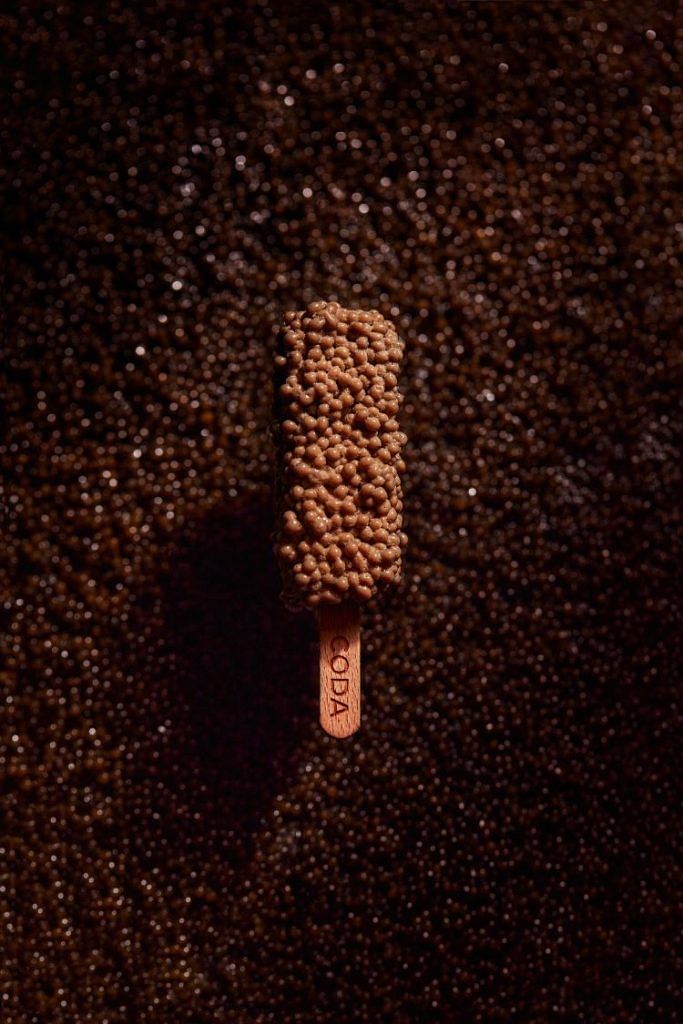
Working round restrictions
Sourcing components that match a chef’s values and particular necessities is just not all the time straightforward, and Berlin’s youthful era of cooks has typically met frustrations. Canadian chef Dylan Watson-Brawn, the culinary brains behind eight-seater Ernst, initially tried to supply fish from German waters however now works with fishermen in Brittany, France.
At Ernst, he serves 40 programs of Japanese-inspired dishes, with a robust concentrate on fish and seafood. This exacting chef, who was the primary Westerner, on the age of 16, to coach at Tokyo’s fiercely exact, three-Michelin-star RyuGin, says native fishermen weren’t capable of present what he wanted: “We needed it to work,” he says, “however sadly it wasn’t mutual.”
Ernst’s dishes, which Watson-Brawn says are their approach of “exploring the areas and climates of our personal yard right here in Germany and of Europe as an entire,” change each day based on accessible produce. His winter season is powerful on seasonal citrus flavours, including acidity hits amongst components similar to squash, beetroot, mini shrimps, and a number of the sweetest, most chic uni you’ll possible style.
Watson-Brawn, Gault & Millau Germany’s Chef of the Yr 2022, just lately introduced that Ernst will shut on the finish of 2024 when he will likely be specializing in his informal meals, pure wine, and occasional spot known as Julius, simply close by within the rough-around-the-edges space of Marriage ceremony. The menu adjustments weekly to mirror the season and depends on the shut relationships the Ernst group has constructed with their farmers and producers over the previous few years.
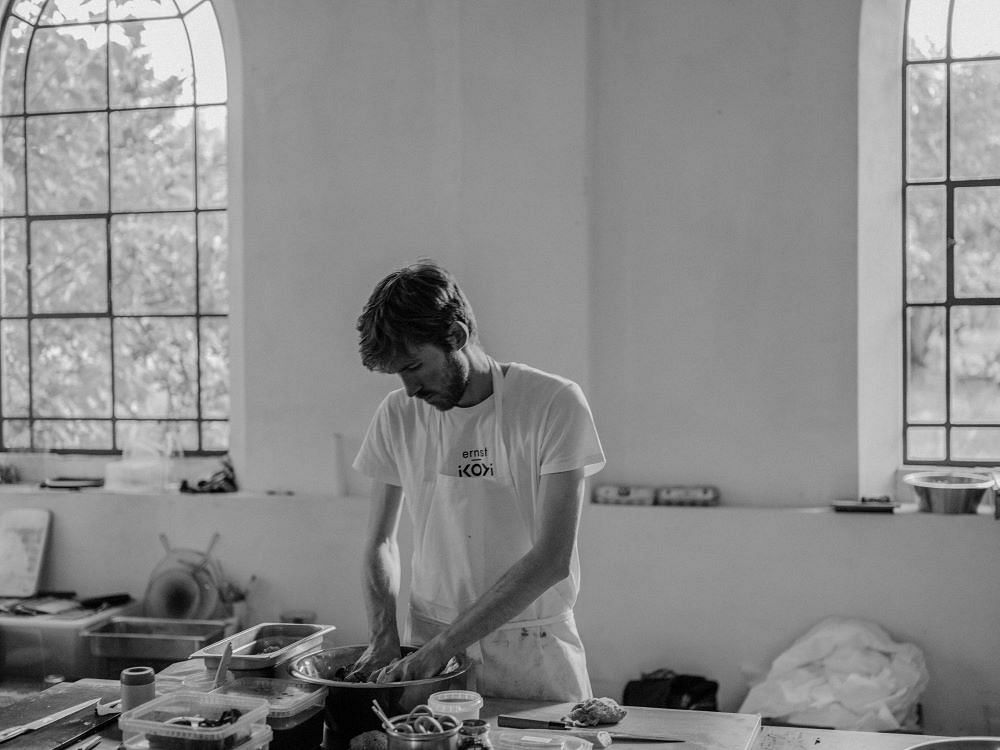
Ernst’s closure however, Berlin’s eating scene continues to develop, with extra cooks providing a style of the area via their distinctive and diversified approaches. If consuming is a political act, Berlin’s eating places have created a thriving democratic neighborhood.
This text was initially printed in The Peak.
Supply: Her World
